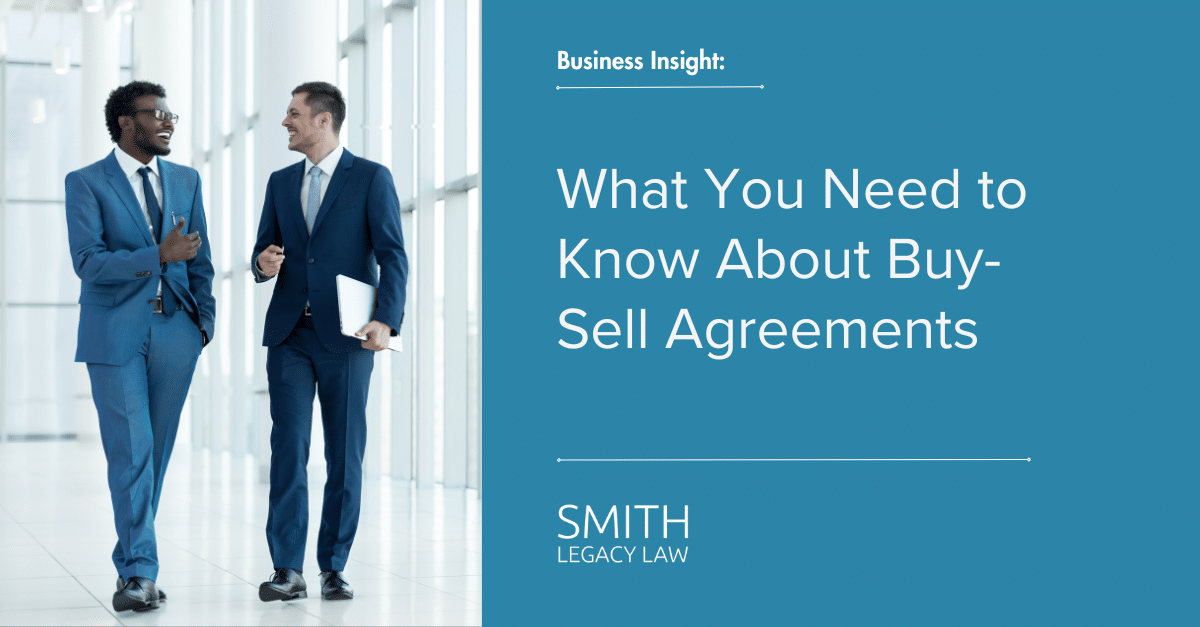If you are co-owner of a business, it is important to plan for what happens if you or another owner exits the business. This is particularly crucial if the company is a partnership or closely held corporation because those remaining will want control over who gets the departing owner’s interest. An effective tool to protect the business in this situation is a buy-sell agreement.
What Is a Buy-Sell Agreement?
A buy-sell agreement is a contract that sets forth how business interests are treated if a partner or owner dies or otherwise exits the business. It may be incorporated into a partnership or shareholder agreement if it is intended to apply to all owners (present and future). Alternatively, it can be a stand-alone agreement. Typically, it is a separate contract when it is a private agreement between some but not all owners regarding their individual shares of the business.
Why Is a Buy-Sell Agreement Necessary?
Whenever there are multiple partners and owners in a business, there is a need to address the voluntary or involuntary departure of an owner. The buy-sell agreement helps minimize disputes and ensure the continuing operation of the business by providing for a clear method of transferring that owner’s interest to another party.
What Types of Provisions Are in a Buy-Sell Agreement?
Generally, buy-sell agreements outline the terms of transfer of an owner’s interests. The contract should set forth the following:
- Triggering events for the buyout provision
- The owner’s rights and obligation to buy or sell their share
- The company’s rights and obligations to buy or sell their share
- Valuation of shares
- Financing the sale of the owner’s interest vs after death
A right of first refusal is commonly incorporated into the agreement. It may provide that other owners or the company have the right to be notified that an owner wants to sell their shares and/or have an opportunity to match an offer by another buyer. There will also be a requirement to have the shares valued. The method for valuing shares and selecting an appraiser will be addressed in future blog posts.
How Can a Purchase Be Financed?
If an owner is seeking to sell their share, the buy-sell agreement can provide for an installment sale. The purchaser provides an upfront lump-sum payment and the remainder is financed over time from revenue from the business. The agreement should include an agreed-upon interest rate on future installment payments.
Buy-sell agreements also may be financed with life insurance. The owners purchase life insurance on each other and if a partner or owner dies, the insurance proceeds are used to pay heirs for the decedent’s share of the business.
Do You Need a Buy-Sell Agreement?
Many business owners fail to engage in succession planning. At best, they may plan for death, but ignore disability, retirement, bankruptcy, divorce, conflicts with co-owners or other reasons why owners may exit. As a result, they risk the future of their business. A buy-sell agreement is one of many tactics that can protect your business. Contact us to discuss your situation. We help start-ups through mature companies to minimize potential problems and maximize the value of their business.
